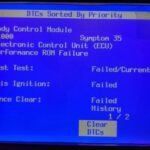The NEMA L14-20 standard designates a specific type of locking power connector commonly used in North America for high-power applications. This guide will delve into the specifications of the L14-20 plug and receptacle, exploring its applications and providing a comprehensive overview of related components.
Decoding the L14-20 Connector
L14-20 connectors are designed for 20 amps and 250 volts, utilizing a four-wire grounding configuration (3-phase and 1 neutral with ground). The “L” prefix signifies that it’s a locking type connector, preventing accidental disconnection. This feature is crucial for equipment demanding a continuous power supply. They are twist-locking and feature a unique keyway to ensure proper mating.
Key Features of L14-20 Connectors:
- Locking Mechanism: The twist-lock design ensures a secure connection, minimizing the risk of power interruptions.
- Voltage and Amperage Rating: Rated for 250 volts and 20 amps, these connectors can handle significant power loads.
- Wire Gauge Compatibility: Typically accepts 10 AWG, 12 AWG, and 14 AWG conductors.
- Strain Relief: Incorporates a strain relief mechanism (cord grip) to protect the wiring from damage. The typical cord grip range is 0.375-1.156 inches in diameter.
- Color Coding: Commonly available in black and gray or white for inlets and outlets. Color variations might exist depending on the manufacturer.
Common Applications of L14-20 Connectors
L14-20 connectors find application in a variety of settings where reliable high-power connections are essential:
- Industrial Machinery:powering heavy-duty equipment like saws, welders, and compressors.
- Data Centers: providing power to servers and networking equipment.
- HVAC Systems: connecting large air conditioning units and heating systems.
- Generators: facilitating the connection of portable generators to power distribution panels.
L14-20 Related Components: Plugs, Receptacles, and Inlets
The L14-20 standard encompasses various configurations, including plugs, receptacles, and inlets, each serving a distinct purpose:
- L14-20P (Plug): The male connector that attaches to the power cord. It features blades designed to fit securely into the L14-20R receptacle. Often black/gray in color.
- L14-20R (Receptacle): The female connector typically mounted on a device or a wall outlet. It receives the L14-20P plug. Can be black in color.
- L14-20 FI (Flanged Inlet): Often used for panel mounting on equipment enclosures, providing a weather-resistant connection point when used with appropriate covers. Usually white in color.
- L14-20 FO (Flanged Outlet): Similar to the flanged inlet but configured as an outlet for power distribution. Generally white in color.
Flanged inlets and outlets are often paired with weatherproof covers (like the 5202-WC or 79485) for protection against dust and moisture. These covers enhance the durability and safety of the connection in harsh environments.
Additionally, weatherproof covers for terminal shields (such as the 5205-WTC) provide added protection for the wiring terminals. They help prevent debris and moisture from entering the connection, further increasing the reliability of the electrical system.
Wall boxes like the 79420-D and 79425-D provide a safe and secure housing for L14-20 receptacles in outdoor or wet locations. They are designed to meet specific environmental protection standards.

